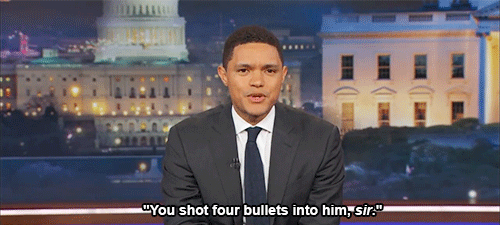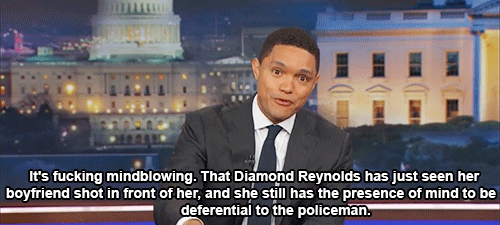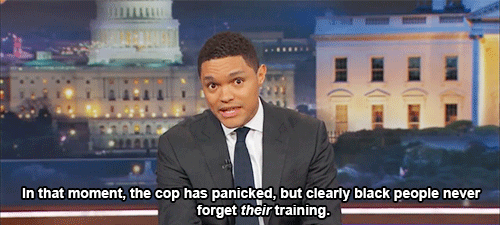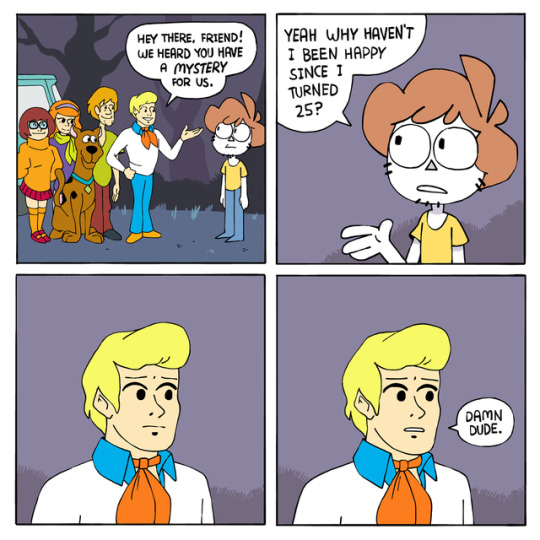Photo
Hits close to home



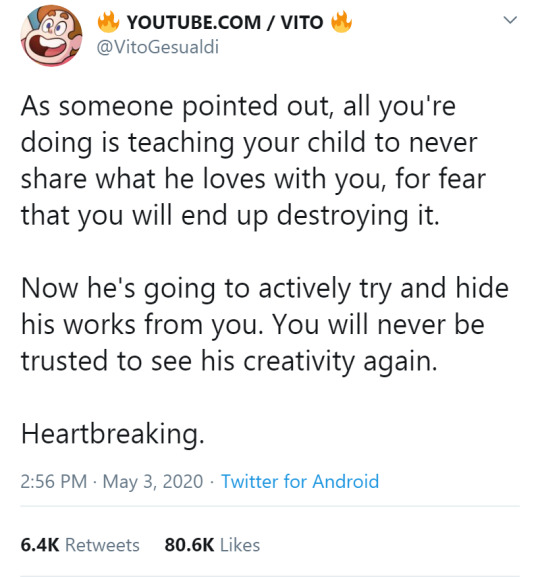
Some parents really don’t understand the difference between actual discipline and hurting your kids. This teaches a kid nothing except needing to hide what makes them happy because they’re scared their parents will destroy it.
105K notes
·
View notes
Text


There’s not much worth salvaging from this series. An adult “imprints” on a fucking baby.
9K notes
·
View notes
Link
Avner Ben-Zaken is a scholar of Ibn Tufayl’s story, Hayy ibn Yaqzan, and says the text is unlike anything that came before it: “It’s incredibly radical. Not only for medieval times, even for today. To argue that a person, in order to get perfect knowledge, has to go through a process of only, exclusively, first-hand experience, not relying at all on any tradition – not scientific tradition, not philosophical tradition, definitely not religious tradition – that the person, in order to know the best, has to know through first-hand experience, all the knowledge that exists in the world and that you cannot really just cite knowledge and trust writers or just develop something scientific built on assumptions from the past, that we have to start afresh every time when we do scientific or philosophical investigation, it’s incredible for medieval time. It is radical even for today.“
28 notes
·
View notes
Photo









Gorgeous 18th century militarized Sailor Moon crew by Carol Azevedo!
1K notes
·
View notes
Text
Spanish grammar
El Futuro Simple
(pronombre de) sujeto + infinitivo + terminación
yo/tú/él/ella/nosotros/vosotros/ellos + infinitivo + é / ás / á / emos / éis / án
When is it used?
when you talk about an event in the future
e.g “En 2020 tendré veinte años”
to express assumptions & possibilities
e.g. (el teléfono suena) ¡Ah! Será mi madre.
it is used in the main clause of conditional sentences
e.g. “Si hace malo tiempo, iremos a la cine.”
Irregular Forms
decir => diré, dirás, dirá, diremos, diréis, dirán
haber => habré, habrás, habrá, habremos, habréis, habrán
caber => cabré, cabrás, cabrá, cabremos, cabréis, cabrán
hacer => haré, harás, hará. haremos, haréis, harán
poder => podré, podrás, podrá, podremos, podréis, podrán
poner => pondré, pondrás, pontrá, pondremos, pondréis, pondrán
querer => querré, querrás, querrá, querremos, querréis, querrán
saber => sabré, sabrás, sabrá, sabremos, sabréis, sabrán
salir => saldré, saldrás, saldrá, saldremos, saldréis, saldrán
tener => tendré, trendrás, tendrá, tendremos, tendréis, tendrán
valer => valdré, valdrás, valdrá, valdremos, valdréis, valdrán
venir => vendré, vendrás, vendrá, vendremos, vendréis, vendrán
157 notes
·
View notes
Photo

Science Fiction in Colonial India, 1835-1905: Five Stories of Speculation, Resistance and Rebellion (2019)
‘Science Fiction in Colonial India, 1835-1905’ shows, for the first time, how science fiction writing developed in India years before the writings of Jules Verne and H. G. Wells. The five stories presented in this collection, in their cultural and political contexts, help form a new picture of English language writing in India and a new understanding of the connections among science fiction, modernity and empire.
Speculative fiction developed early in India in part because the intrinsic dysfunction and violence of colonialism encouraged writers there to project alternative futures, whether utopian or dystopic. These stories, created by Indian and British writers, responded to the intellectual ferment and political instabilities of colonial India. They add an important dimension to our understanding of Victorian empire, science fiction and speculative fictional narratives. They provide new examples of the imperial and the anti-imperial imaginations at work.
In Victorian India technological change was necessarily understood through differences between the colonizer and the colonized. Since India was not a settler colony, new British-imposed forms of government could scarcely claim continuity with the past, and political and cultural dislocations gave rise to speculation about wholly new forms of social organization. Creation and destruction, cultural innovation and colonial resistance gave rise to the plots and tropes of science fiction. In the stories collected in 'Science Fiction in Colonial India, 1835-1905’ nineteenth-century Indian writers project successful and failed revolutions into a twentieth-century future. British writers imagine, on the one hand, a catastrophic flood - thanks to the projected Panama Canal - and, on the other, a utopian future of peaceful multi-ethnic parliamentary government. And a Muslim writer designs a feminist utopia in which women practice science and men keep house.
by Mary Ellis Gibson (Editor)
Get it here
Mary Ellis Gibson is the Arthur Jeremiah Roberts Professor of Literature and chair of English at Colby College, USA. Her recent work focuses on the development of English language literature in colonial India. The author of “Indian Angles: English Verse in Colonial India from Jones to Tagore’ and the accompanying anthology "Anglophone Poetry in Colonial India, 17801913,” Gibson has edited several collections of fiction, including “New Stories by Southern Women and Homeplaces: Stories of the South by Women Writers.”
[SuperheroesInColor faceb / instag / twitter / tumblr / pinterest / support ]
1K notes
·
View notes
Text
How to explain linguistics to your friends and family this holiday season
This time of year often involves leaving the cozy sanctuary of your linguistics department where everyone knows what a wug is and spending quality time with your non-linguist friends and family. Who, bless ‘em, are often a little bit confused about linguistics. So I’ve compiled a list of common questions and some resources to help you answer them. And if you end up needing a break, check out the linguistmas tag and my extensive archive of linguist humour, or contribute to the linguistics baked goods or handcrafts files.
What is linguistics exactly?
Explaining what linguistics is using geology and biology analogies
Brain surgeon analogy
Car analogy
Botany analogy
Subfields of linguistics explained using toy metaphors
“Becoming conscious of previously unconscious phenomena is one of the principle joys of linguistic work”
So, you’re a linguist? How many languages do you know?
Why linguists hate being asked how many languages they know
Learning languages linguistically
Turning “how many languages do you know?” into a good conversation using Gricean Maxims
Wow, linguistics, I guess I’d better watch my grammar around you, right?
8 myths about language and linguistics
On the interplay between copyediting and descriptivism
We each have an idiolect, and they’re all okay
How to have a conversation about language differences without being a prescriptivist
People these days with their texting and their emoji and their phones, what’s that even doing to language?
I literally wrote you a whole book about that
But, if you’re pressed for time, you could hand ‘em off a few of my articles instead
That’s not even in the dictionary! So many people are degrading language these days!
Anne Curzan on what makes a word “real”
xkcd on kids and text abbreviations and on grammar police vs fashion police
Erin McKean, actual lexicographer, on what it means when a word isn’t in the dictionary
The kilogram model of language and what’s wrong with the America’s ugliest accent challenge
Language is open source
Which English you speak has nothing to do with how smart you are
People have been complaining about kids degrading language since the Middle Ages
The many problems with the idea that emoji are in any way threatening the English language
Kids these days aren’t ruining language
Don’t you just hate it when people say…?
In defence of “unnecessary” words
Every argument you’ll ever need for singular “they” (plus the Canadian government’s support of it, why do we even have gendered pronouns, and a comparison with singular “you”)
In defence of hyperbolic “literally”
Vocal fry and can we stop hating on how young women talk?
When it comes to Rachel Jeantel, who’s really on trial here?
Can we just, like, get over the way women talk?
Move over Shakespeare, teen girls are the real language disruptors
The problem with talking about “sounding gay”
Why Chaucer said “ax” instead of “ask” and why some still do
An interview with Alexandra D’Arcy about why “like” is so interesting
____ isn’t a real language!
Indigenous languages, literacy, and the myth of the “unwritten language”
What if we talked about monolingual White children the way we talk about low-income children of color?
Myth-busting about sign languages
The strange reason deaf children aren’t taught sign language
______ [insert other linguistics myth here]
An advice thread I wrote about cheerful mythbusting and playing “I’m a linguist, ama” at parties
A linguistics degree? What are you going to do with that?
Check out the linguistics jobs series to help think about options beyond academia, or send people there to reassure them that options exist.
What kinds of gifts can I give the linguist in my life?
An extensive list of pop linguistics books and lingfic (be sure to read the comments!)
Here are linguistics merch/gift guide roundups from 2015, 2016, 2017, 2018, and Lingthusiasm merch: IPA scarves and descriptivist t-shirts, bags, and mugs
So I know this young person who might be interested in linguistics. Do you have any advice for them?
Any of the books in the list of books!
How to teach yourself linguistics online for free
Intrigued by the linguistics in Arrival? Here’s what to check out next
Specifically for high schoolers: How to participate in the international linguistics olympiad and Linguistics resources for high school teachers
Advice on finding a linguistics undergrad, whether to go to grad school for linguistics (and more advice), and how to pick a linguistics graduate program
Tell me something interesting about linguistics!
My go-to at parties is the script in Explaining English plurals to non-linguists, or put on any episode of Lingthusiasm.
For a longer list of linguistic writing pitched at non-linguists, try here for articles I’ve written, here for other blogs, or here for some of my top blog posts. To write your own, see advice for writing pop linguistics articles and how pop linguistics differs from teaching and pop science. Or go for linguistics videos, linguistically-relevant games, or this list of linguistics and language podcasts.
6K notes
·
View notes
Photo

Because of the Fifth Amendment, no one in the U.S. may legally be forced to testify against himself, and because of the Fourth Amendment, no one’s records or belongings may legally be searched or seized without just cause. However, American police are trained to use methods of deception, intimidation and manipulation to circumvent these restrictions. In other words, cops routinely break the law—in letter and in spirit—in the name of enforcing the law. Several examples of this are widely known, if not widely understood.
1) “Do you know why I stopped you?”
Cops ask this, not because they want to have a friendly chat, but because they want you to incriminate yourself. They are hoping you will “voluntarily” confess to having broken the law, whether it was something they had already noticed or not. You may think you are apologizing, or explaining, or even making excuses, but from the cop’s perspective, you are confessing. He is not there to serve you; he is there fishing for an excuse to fine or arrest you. In asking you the familiar question, he is essentially asking you what crime you just committed. And he will do this without giving you any “Miranda” warning, in an effort to trick you into testifying against yourself.
2) “Do you have something to hide?”
Police often talk as if you need a good reason for not answering whatever questions they ask, or for not consenting to a warrantless search of your person, your car, or even your home. The ridiculous implication is that if you haven’t committed a crime, you should be happy to be subjected to random interrogations and searches. This turns the concept of due process on its head, as the cop tries to put the burden on you to prove your innocence, while implying that your failure to “cooperate” with random harassment must be evidence of guilt.
3) “Cooperating will make things easier on you.”
The logical converse of this statement implies that refusing to answer questions and refusing to consent to a search will make things more difficult for you. In other words, you will be punished if you exercise your rights. Of course, if they coerce you into giving them a reason to fine or arrest you, they will claim that you “voluntarily” answered questions and “consented” to a search, and will pretend there was no veiled threat of what they might do to you if you did not willingly “cooperate.”
(Such tactics are also used by prosecutors and judges via the procedure of “plea-bargaining,” whereby someone accused of a crime is essentially told that if he confesses guilt—thus relieving the government of having to present evidence or prove anything—then his suffering will be reduced. In fact, “plea bargaining” is illegal in many countries precisely because it basically constitutes coerced confessions.)
4) “We’ll just get a warrant.”
Cops may try to persuade you to “consent” to a search by claiming that they could easily just go get a warrant if you don’t consent. This is just another ploy to intimidate people into surrendering their rights, with the implication again being that whoever inconveniences the police by requiring them to go through the process of getting a warrant will receive worse treatment than one who “cooperates.” But by definition, one who is threatened or intimidated into “consenting” has not truly consented to anything.
5.) We have someone who will testify against you
Police “informants” are often individuals whose own legal troubles have put them in a position where they can be used by the police to circumvent and undermine the constitutional rights of others. For example, once the police have something to hold over one individual, they can then bully that individual into giving false, anonymous testimony which can be used to obtain search warrants to use against others. Even if the informant gets caught lying, the police can say they didn’t know, making this tactic cowardly and illegal, but also very effective at getting around constitutional restrictions.
6) “We can hold you for 72 hours without charging you.”
Based only on claimed suspicion, even without enough evidence or other probable cause to charge you with a crime, the police can kidnap you—or threaten to kidnap you—and use that to persuade you to confess to some relatively minor offense. Using this tactic, which borders on being torture, police can obtain confessions they know to be false, from people whose only concern, then and there, is to be released.
7) “I’m going to search you for my own safety.”
Using so-called “Terry frisks” (named after the Supreme Court case of Terry v. Ohio, 392 U.S. 1), police can carry out certain limited searches, without any warrant or probable cause to believe that a crime has been committed, under the guise of checking for weapons. By simply asserting that someone might have a weapon, police can disregard and circumvent the Fourth Amendment prohibition on unreasonable searches.
U.S. courts have gone back and forth in deciding how often, and in what circumstances, tactics like those mentioned above are acceptable. And of course, police continually go far beyond anything the courts have declared to be “legal” anyway. But aside from nitpicking legal technicalities, both coerced confessions and unreasonable searches are still unconstitutional, and therefore “illegal,” regardless of the rationale or excuses used to try to justify them. Yet, all too often, cops show that to them, the Fourth and Fifth Amendments—and any other restrictions on their power—are simply technical inconveniences for them to try to get around. In other words, they will break the law whenever they can get away with it if it serves their own agenda and power, and they will ironically insist that they need to do that in order to catch “law-breakers” (the kind who don’t wear badges).
Of course, if the above tactics fail, police can simply bully people into confessing—falsely or truthfully—and/or carry out unconstitutional searches, knowing that the likelihood of cops having to face any punishment for doing so is extremely low. Usually all that happens, even when a search was unquestionably and obviously illegal, or when a confession was clearly coerced, is that any evidence obtained from the illegal search or forced confession is excluded from being allowed at trial. Of course, if there is no trial—either because the person plea-bargains or because there was no evidence and no crime—the “exclusionary rule” creates no deterrent at all. The police can, and do, routinely break the law and violate individual rights, knowing that there will be no adverse repercussions for them having done so.
Likewise, the police can lie under oath, plant evidence, falsely charge people with “resisting arrest” or “assaulting an officer,” and commit other blatantly illegal acts, knowing full well that their fellow gang members—officers, prosecutors and judges—will almost never hold them accountable for their crimes. Even much of the general public still presumes innocence when it comes to cops accused of wrong-doing, while presuming guilt when the cops accuse someone else of wrong-doing. But this is gradually changing, as the amount of video evidence showing the true nature of the “Street Gang in Blue” becomes too much even for many police-apologists to ignore.
http://www.alternet.org/civil-liberties/7-ways-police-will-break-law-threaten-or-lie-you-get-what-they-want
294K notes
·
View notes
Text
an incomplete list of unsettling short stories I read in textbooks
the scarlet ibis
marigolds
the diamond necklace
the monkey’s paw
the open boat
the lady and the tiger
the minister’s black veil
an occurrence at owl creek bridge
a rose for emily
(I found that one by googling “short story corpse in the house,” first result)
the cask of amontillado
the yellow wallpaper
the most dangerous game
a good man is hard to find
some are well-known, some obscure, some I enjoy as an adult, all made me uncomfortable between the ages of 11-15
add your own weird shit, I wanna be literary and disturbed
160K notes
·
View notes
Photo
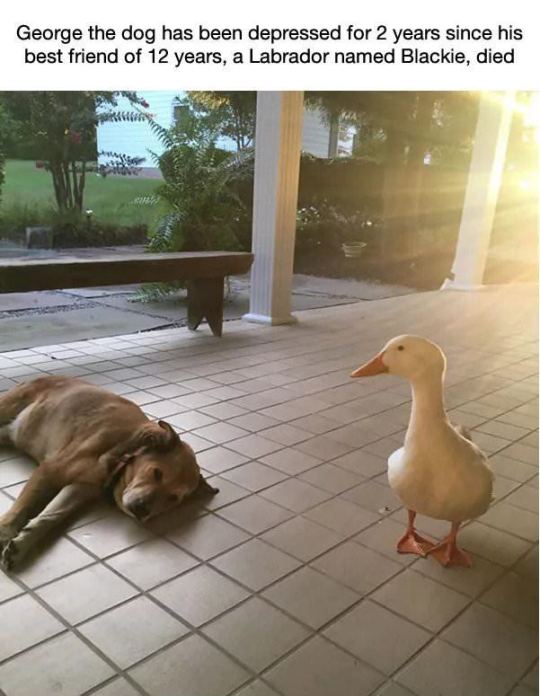
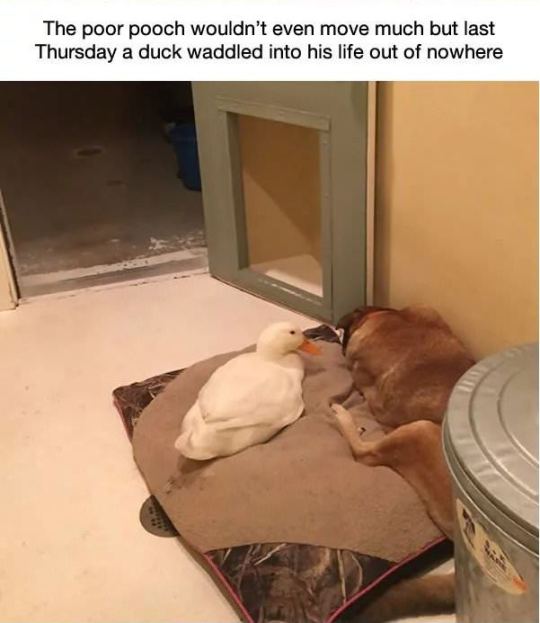


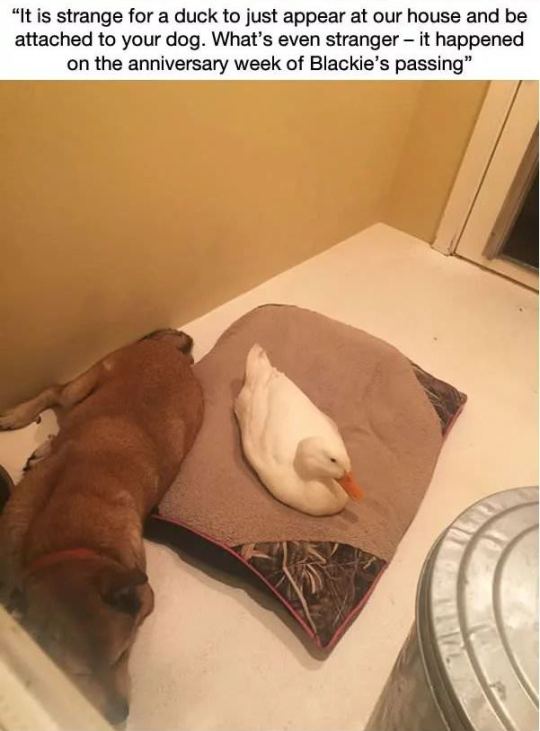


This dog was depressed for 2 years after his best friend died, but then this duck showed up
350K notes
·
View notes






